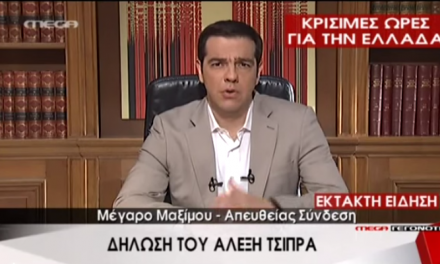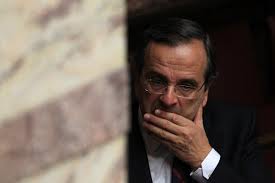By Edward G. Stafford, Ahval
As Turkish-U.S. relations continue to experience simmering tension that could boil over in response to provocative statements or actions from their leaders, it’s a good time to reflect on how U.S. policy towards Turkey was formulated pre-Trump and how it has changed with his arrival as the ultimate director of U.S. foreign policy .
General Points:
Foreign policy is formulated through a process involving diplomats, analysts, other government officials, academics, and other non-government voices providing input on the direction a state’s foreign policy should take. Given all that, one must bear in mind that at the end of the process, the political leaders of a democratic nation, not unelected officials, determine a state’s foreign policy.
While the formulation process may begin abroad emanating from a state’s diplomatic representatives in a foreign capital, political leaders formulate foreign policy from their offices in their nation’s capital. The formulators (political leaders) of foreign policy rely on a state’s diplomats and other officials to then conduct the policy as formulated. At times this can be fraught with difficulties, for example when the foreign policy of a new administration establishes policies with which diplomatic staff disagree.
A recent example from the United States would be the decision of President Donald Trump to withdraw from the nuclear deal with Iran. No one has done a survey of U.S. foreign affairs personnel, but just as many in the unofficial foreign affairs community opposed the withdraw decisions, I suspect that some or even many U.S. personnel do not personally endorse Trump’s decision . It is noteworthy that unlike the response from State Department personnel to the first travel ban of the Trump administration (aka Muslim Travel Ban), any opposition to the Iran decision has been kept quiet or within confidential communication channels.
The decision by Trump to implement the U.S. law calling for the U.S. embassy to be established in Jerusalem is illustrative. In 1995, the U.S. Congress passed the Jerusalem Embassy Act calling for the embassy to be moved from Tel Aviv to Jerusalem. Congress included a presidential waiver provision and until Trump’s decision in December 2017, the waiver had been invoked every six months for more than 20 years. The policy was formulated by elected legislative leaders (Congress) in consultation with the elected chief executive (the president). U.S. diplomatic personnel, other agency officials, academics and others in the broad foreign affairs community offered their opinion on the impact of a different course of action and certainly advised of the likely consequences and reactions of others, but they did not decide the course of action, they did not set policy, Trump did .
Traditional practice vis-à-vis Turkey:
In the case of the United States regarding policy towards Turkey, embassy and consular staff in Turkey, officials of the Departments of State, Defense, Treasury, Commerce, and from other government agencies provide policy makers in Washington with information, analysis, and advice. The National Security Council staff coordinates the advice to deliver to senior White House officials recommendations and options for U.S. policy.
Often times how a policy will affect one country, Turkey for our purposes, is considered within the larger context of the impact of a decision on many other countries. Using the Iran nuclear deal example again, many voices likely contributed to the discussion of theimpact on Turkey of re-introducing sanctions on companies doing business with Iran, but that would have been in the context of the impact on many other nations as well.
Part of the role of U.S. diplomatic staff in Turkey and of the relevant offices at the State Department is to ensure that when the impact of a policy decision is being considered, the specific impact on relations with Turkey is noted and considered. The aforementioned U.S. staff do not advocate the Turkish position, but provide information and context for the policy makers in Washington. They also provide knowledge on how the government of Turkey is likely to respond to a particular course of action, not to dissuade policy makers from a decision, but to alert them to probable consequences of a particular course of action.
The reaction of President Recep Tayyip Erdoğan and other Turkish officials to Trump’s recent policy decisions, both the embassy move and the Iran nuclear deal withdrawal, has been decidedly negative. This was likely predicted by U.S. officials responsible for relations with Turkey. In this Turkey was not alone – very few nations supported or endorsed the U.S. actions.
That said, the stridency of denunciations by Turkish political leaders in government and in the opposition will be noted by policy makers as they continue working on U.S. policy with Turkey. U.S. officials responsible for relations with Turkey will find their efforts to ensure Turkish concerns get a fair hearing complicated and made more difficult by these strident denunciations.
It is not a case of advocating the Turkish position, but of making efforts to explain and create context for a better understanding of the Turkish position in order to maintain strong, positive relations with an important NATO ally . All of these efforts at assisting the policy formulation come in the context of a growing sense among some in Congress and the unofficial foreign affairs community that Turkey cares little for U.S. concerns and should be considered an unreliable ally, if an ally at all.
What’s next?
Trump’s penchant for impulsive outbursts communicated via Twitter is akin to Erdoğan’s provocative rhetoric at campaign rallies and when addressing the party faithful. Each man has undone the traditional process of formulating foreign policy in their respective nations by stamping their personal beliefs more deeply into their respective nation’s foreign policy.
Trump’s selection of new Secretary of State Mike Pompeo reflects his desire to have like-minded cabinet secretaries. Erdoğan, likewise, has appointed those who share his views to advise him. In both cases, the advice of outside experts and knowledgeable government personnel appears to count for little in the formulation of foreign policy, with each man relying most on his own negotiating skills and leadership style. For U.S. policy towards Turkey, this means that Trump’s perceptions of how supportive Turkey is of economic sanctions against Iran will likely outweigh other factors as he directs U.S. relations with Turkey.
Others issues causing tension – for example, moving the U.S. embassy to Jerusalem, the presence of exiled Turkish cleric Fethullah Gülen in Pennsylvania, Turkey’s jailing of American Pastor Andrew Brunson , U.S. assistance to Syrian Kurdish fighters , to name a few – are important factors in conducting relations with Turkey, and putting them into context for senior policy makers would normally be an essential element in developing policy. But Trump has shown that he does things differently .


















